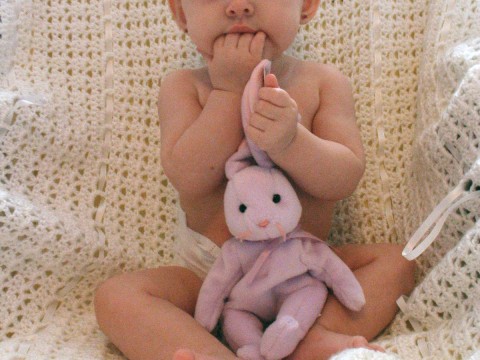As your newborn grows, he will begin to explore his voice by babbling. To some, this seems like pure noise, but the syllables and sounds a baby begins to make are the building blocks of language and talking. Some babies babble earlier than others and some babies even have unique ‘voices’ at this age.
Babies listen to everything that is said from the first day of life, and even earlier. As such, a baby will often learn from their parents or primary caretakers and repeat what they hear. Michael H. Goldstein, an assistant professor of psychology at Cornell, has done research showing that parental stimulation can accelerate this process. Basic reinforcement from parents will encourage a baby to continue making a sound. For instance, every time your infant makes a ‘ba ba ba’ sound and you respond, “Want your ba ba?” he will learn that this sound is a good one.

The difference between sounds is also important. Researchers believe that different muscles are used when forming consonants versus vowels. Carol Stoel-Gammon, professor of speech and hearing sciences at the University of Washington states
“To make an m, you have to close your mouth and the air has to come out your nose. It’s not in your brain somewhere “” you have to learn it. A baby hears all these things and is able to differentiate them before the baby can produce them.”
Bottom line: help your baby perfect the noise. Turn the babble into words by repeating the sounds and encourage new ones. Do not forget to praise him or her with a smile or tickle, it is likely your baby will repeat a new sound if he or she knows it makes Mom or Dad happy.